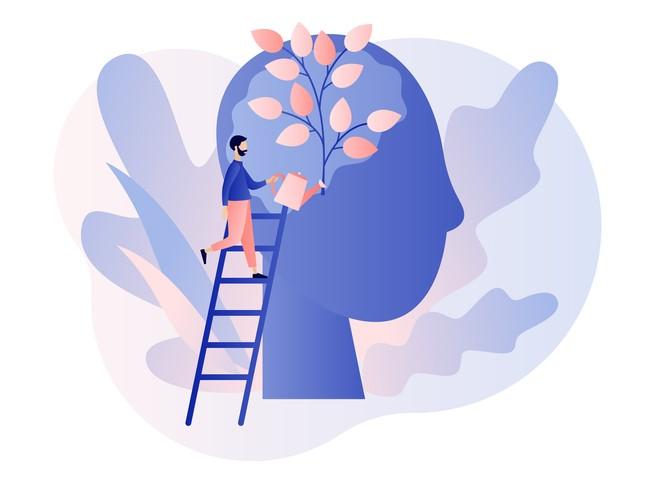
Leading through mentorship: a guide to the ups and downs
Anna Chur-Hansen reflects on her experiences as a mentee and mentor, how this skill can be developed and how it contributes to the building of a meaningful career
You may also like
Popular resources
If you google “mentor” one definition you will see is “an experienced and trusted adviser”. I remember so vividly my first position as a university tutor, feeling overwhelmed, uncertain and not entirely clear what I was supposed to be doing in my role as a young psychology graduate enrolled in a PhD. I needed a mentor.
I had wonderful supervisors, but with their role as employers, I was not entirely comfortable with disclosing my anxieties and feelings of inferiority. Everyone else seemed to be much more accomplished and certain about their ambitions and career paths – I am sure, in retrospect, that was my misinterpretation, or their excellent impression management. But that is how I felt. Here, I’d like to offer some advice for others on mentorship, based on my experiences.
The right mentor can change your career progression – and your life
It was not for several years that I had a career- and life-changing experience. A senior doctor (I was in medical school), with whom I had been working on some teaching projects, asked me out for lunch. She was funny, irreverent and clever – and she was extremely well connected in the university and the profession. She became an incredibly trusted and wise mentor.
We were close colleagues for many years. She was explicit, at that first lunch, that she had chosen me, to be my mentor, as she saw my worth. She was explicit that she intended to see me reach the professoriate. And that she would help me. And she did. I am certain that without her guidance and support, I would have had a completely different trajectory. I am forever in her debt.
- How to be an empathetic leader during times of change
- Five ways to motivate and inspire a high-performing team
- Authentic leadership: the four pillars of keeping it ‘REAL’
A mentor can help you to question your most ingrained assumptions
A few years later, a second profound mentor came into my orbit. Another medical practitioner (a psychiatrist), unusually, he also held a PhD in anthropology. I had been taught in a traditional, statistical, biomedical model and I had been told that “science” was the only answer to any question. He and I would chat in the corridors, but we did not have a particularly close connection. However, one day we started talking about qualitative methods, such as ethnography.
Thus began more than a decade of intellectual debates, a steep learning curve for me, questioning all I had been taught as a student and having the fortune to be mentored by one of the sharpest intellects I have had the privilege to know. His teaching style was inspirational and his acumen as a clinician remarkable. Sadly, he was a troubled soul, taking his life one day, and our mentorship ended abruptly. Despite his no longer being alive, he still influences me, and I still draw on what I learned from him in my work as an academic and as a mentor.
Mutual choice may be more powerful than allocation of mentor and mentee
I learned from my mentoring experiences that allocation of mentors is not as powerful as being chosen to give and receive. Over the years I have seen attempts to pair individuals with one another – a senior woman with a less senior woman, for example. They may have never met. I’m sure that sometimes these arrangements work out well but, for me, the most enjoyable and satisfying relationships – and the ones that have been enduring – tend to be ones where both parties really like one another and chose to work together more organically.
It’s not about quantity, it’s about the quality of the arrangement
The arrangement might go on for years or for a shorter time. The meetings might be very frequent, or they might be once a year, or even less – recently, a past medical student contacted me after about 20 years seeking mentoring. To me, that’s an honour. The mentoring can be ad hoc, with me popping into someone’s office or dropping them an email, or planned, with scheduled meetings over a tea or coffee or, happily for me because I’m not interested in cooking, over a nice meal at a restaurant.
Mentoring is a mutual responsibility with mutual benefit
I think it’s important that mentoring not be seen as something you “do” to someone. It is a mutually beneficial exchange, with both parties being able to freely discuss challenges and successes, learning from one another about careers, politics in the various “systems” and looking out for opportunities for one another. I’ve learned so much through reading people’s promotion and award applications, discussing strategies, talking through how to manage difficult people (and how to not be a difficult person yourself), how to navigate boundaries, when to change research and/or teaching direction and when to decide it’s time to change roles or even leave.
Mentoring can come at a cost
I would say that the positives to being a mentor far outweigh the downsides but, as with any role, there can be problems. Only once in my career – and I’ve been working in academia since 1987 – did the mentoring relationship truly unravel. That was perhaps because a mentor can be put on a pedestal, and it’s a long way to fall from there. I am fallible and make mistakes just like anyone else. In a strong and functional mentoring relationship, that’s understood.
Every now and again, being a mentor can be emotionally draining. It’s important, therefore, to have mentors yourself, people you trust and can talk to, debrief with and have a good laugh with. I started my career with amazing mentors, and I am so fortunate to still have trusted advisers who mentor me and vice versa. I have been blessed.
Anna Chur-Hansen researches and teaches in the School of Psychology at the University of Adelaide, Australia, and is a practising psychologist.
If you found this interesting and want advice and insight from academics and university staff delivered direct to your inbox each week, sign up for the THE Campus newsletter.





Comments (0)
or in order to add a comment